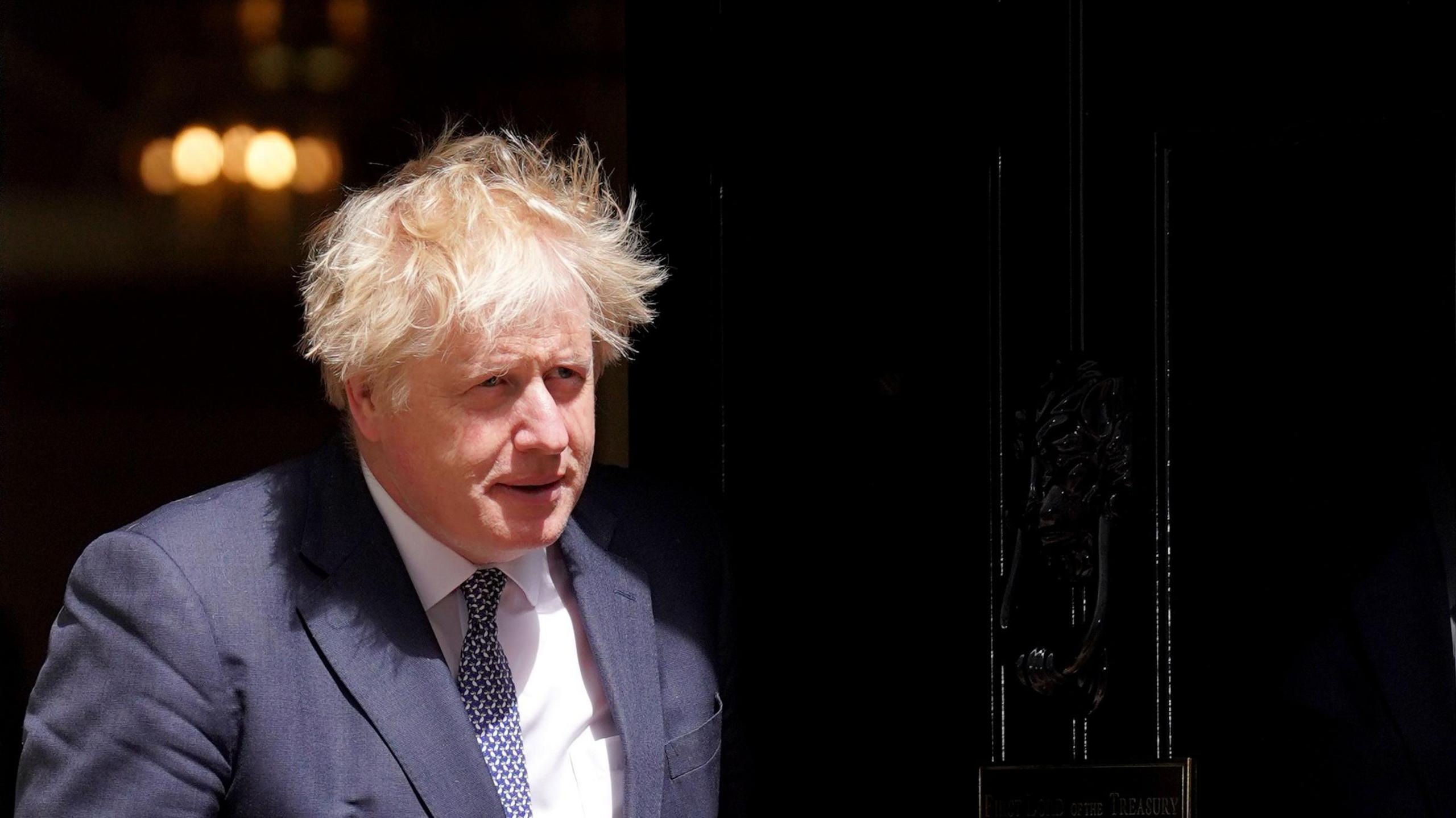'Toxic' No 10 culture harmed Covid response, inquiry finds

- Published
Boris Johnson oversaw a "toxic and chaotic" culture within government that led to poor Covid decision-making, the inquiry into the pandemic response has found.
In a much-awaited report, inquiry chair Baroness Hallett said the former prime minister should have responded more urgently to the developing crisis.
She also criticised his style of communication, which failed to "convey a proper sense of caution" and undermined official health messaging, she said.
Johnson's former top adviser Dominic Cummings was also singled out as a "destabilising influence" and former health secretary Matt Hancock was criticised in the 800-page report.
Former judge Baroness Hallett said Cummings, who dramatically left No 10 in late 2020 after internal battles over his role, contributed to a "culture of fear" that "poisoned the atmosphere" in Downing Street.
Cummings "strayed far from the proper role" of an adviser, she added, and tried to make "key decisions" in Johnson's place - a situation the former prime minister appeared happy with, she wrote.
He also "materially contributed to the toxic and sexist workplace culture" including using "offensive, sexualised and misogynistic language" in messages, the inquiry found.
UK did 'too little, too late', leading to thousands more Covid deaths, says inquiry
- Published13 hours ago
Lockdown could have been avoided - key findings from Covid inquiry
- Published16 hours ago
Cummings was also often a catalyst for action and was among the first political figures to demand strategy meetings and modelling to deal with Covid, the report found.
Alongside civil servants, Cummings helped drive the creation of the Covid-19 Taskforce in the Cabinet Office, which the report said improved the coordination of the government's response.
Hancock, who was in charge of the health department through much of the pandemic, developed a reputation in Downing Street for "overpromising and underdelivering," she added.
She noted there were concerns "about Hancock's truthfulness and reliability in UK government meetings" and that civil servants had had to "double-check what we were being told".
Baroness Hallett said it was essential that leaders are "candid" about the scale of problems during an emergency but Hancock "did not adopt such an approach" to the crisis.
Johnson's leadership style compounded problems as he "oscillated" on restrictions, enabling the virus to spread at pace, the report said.
While acknowledging the "profound" decisions he faced, Baroness Hallett concluded he delayed making choices when "timely decision-making was essential".
Johnson's "expressions of over-optimism" about the impact of Covid also undermined official health advice, the report says - including speaking about shaking hands in hospital the day before launching a handwashing campaign.
Cummings' trip to Barnard Castle and the rule-breaking "partygate" gatherings also "undermined public confidence and increased the risk of people not complying with the rules designed to protect them," Baroness Hallett said.
Cummings has hit back at the inquiry, accusing it of a "vast rewriting of history" and failing to challenge the version of events put forward by scientists.
In a social media statement published shortly before the report was published, the former aide added: "The 'experts' were almost totally wrong, and the entire system has worked to cover this up since then, including the inquiry".
Johnson has yet to respond to the report.
Hancock, who resigned from the health role in June 2021 after breaching social distancing guidance by kissing a colleague and did not stand for re-election at last year's election, is also yet to respond to the report.
The report is the conclusion of the second chapter of the long-running inquiry, which examined how politicians around the UK managed the response to the virus.
Baroness Hallett found the UK was too late to consider the idea of a lockdown to suppress the disease in 2020, by which time the need for stringent restrictions had become "unavoidable".
But she also concluded a lockdown "might have been shorter or not necessary at all" had initial steps to restrict its spread been taken sooner.
Neither the UK government nor the devolved administrations in Scotland, Wales and Northern Ireland had a strategy for exiting the first lockdown, and didn't give "enough attention to the possibility of a second wave", the report said.
The "Eat Out to Help Out" scheme, which encouraged people back to restaurants, "might have contributed to a belief that the pandemic was effectively over" even though ministers knew further waves were likely.
Scotland: Sturgeon excluded ministers from Covid decisions, inquiry says
- Published15 hours ago
Wales: Early Covid response 'inadequate', report finds
- Published12 hours ago
Northern Ireland: Covid decision-making was 'chaotic', says inquiry
- Published13 hours ago
